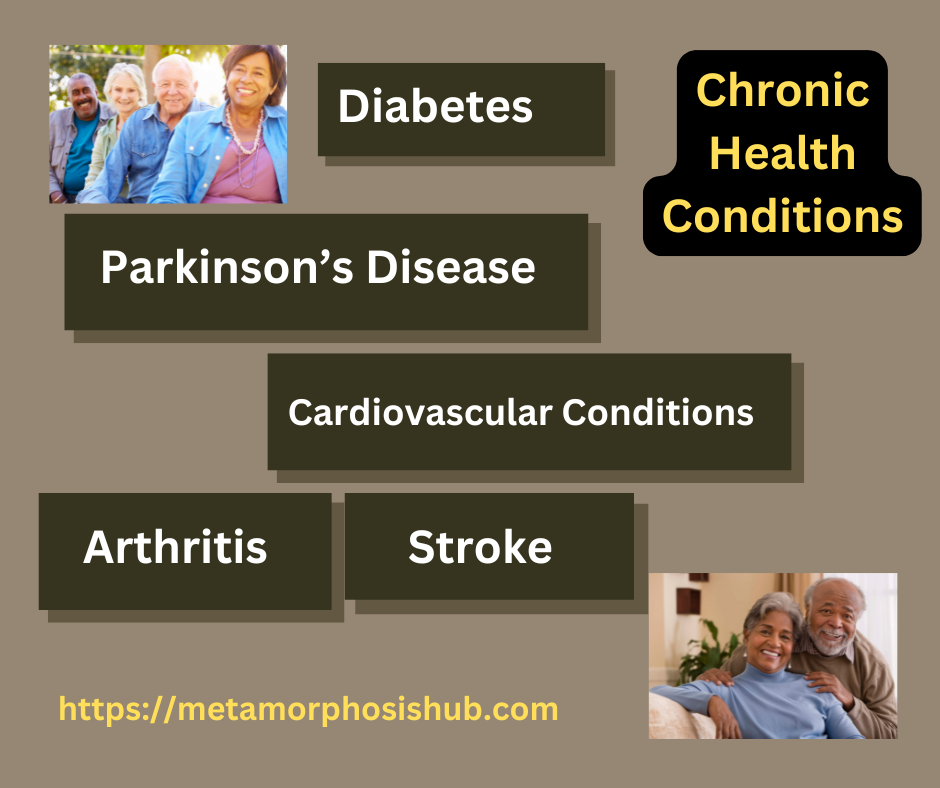As you age, your body changes in ways that can be surprising and frustrating. A loss of balance in seniors is one of the most troubling. There are a variety of causes that can negatively impact balance in older adults.
Have you found yourself stumbling more often without tripping over anything, feeling unsteady on your feet, or even falling? This is not simply annoying but downright dangerous. But why does this happen?
What changes in our bodies as we age that makes it more difficult to stay upright? But most importantly, what can we do about it? Are you taking multiple medications? Stick around to learn why you must be careful if you do!
This article reviews 13 causes and effects of loss of balance in seniors and simple ways to help you improve them to prevent falls. Alert alarm systems are useful products for peace-of-mind safety for seniors.
Physiological and Neurological Changes & Loss of Balance in Seniors
With aging, your balance will decline due to several physiological and neurological changes.
The vestibular system in the inner ear which plays a key role for balance becomes less sensitive, while vision may be impaired by conditions like cataracts.
Muscle and joint weakening, dehydration, postural changes along with a less efficient central nervous system, further diminish the ability of the body to maintain balance, increasing the risk of falls.
We will review these changes under 13 categories.
Aging and Loss of Balance: Muscles, Joint and Bone Changes
Muscle Weakness
As you get older, you tend to lose muscle mass and strength, especially if you are not actively working to maintain it. This process, called sarcopenia, can start as early as in your 30s but really accelerates after age 50.
Weaker muscles, especially in your legs and core, make it harder to keep your balance and recover if you start to stumble.
What can you do? Regular strength training exercises, like squats, lunges, or yoga, can help rebuild muscle strength and improve stability.
Joint and Bone Changes
Your joints naturally become stiffer and less flexible with age. This is partly due to changes in the cartilage and connective tissues, and partly because you tend to move less as you get older.
Aging can lead to conditions like arthritis, which cause joint pain and stiffness. This reduces flexibility and makes movement more difficult.
Stiff joints, especially in the ankles, knees and hips, make it harder to make the quick adjustments needed to maintain balance.
Bone density may also decrease, increasing the risk of fractures from falls.
What can you do? Low-impact exercises, such as swimming or walking, and maintaining a healthy diet with sufficient calcium and vitamin D can support joint and bone health.
Decreased Proprioception
Proprioception is your body’s ability to sense its position in space. It relies on receptors in your muscles, tendons and joints.
These receptors can become less sensitive as you age, making it harder for your brain to know exactly where your body parts are and how they are moving.
There are some situations that can make it tricky to sense where your body is in space.
If you have a proprioception disorder, you might notice things like tripping when walking on bumpy ground or not quite knowing how strong you are, such as when you are lifting something heavy.
Other examples include struggling with coordination which could make it difficult to walk in a straight line or having balance problems that might make navigating stairs a bit wobbly, all of which could lead to falls.
What can you do? Physical therapy, balance exercises, and walking on different surfaces can help enhance proprioception.
Aging and Loss of Balance: Decline in Vision
Your eyes play a big role in balance, helping you orient yourself in space (proprioception) to avoid obstacles. Age-related vision changes like cataracts, glaucoma, or macular degeneration can blur vision.
Even, not getting stronger prescription glasses when your eyes become weaker can make it harder to maintain balance, especially in low light conditions.
What can you do? Regular eye check-ups and corrective measures like glasses or cataract surgery can improve visual cues for balance.
What is the Cause of Loss of Balance?: The Inner Ear and Vestibular System Decline
The vestibular system in your inner ear is necessary for balance. It sends signals to your brain about the position and movement of your head.
As you age, balance issues in the inner ear and vestibular system arise due to degeneration and dying of hair cells in the inner ear that detect motion and spatial orientation.
The structures of the semicircular canals and otolith organs, responsible for detecting head movement and position, become less sensitive, leading to dizziness, vertigo, and a general feeling of unsteadiness.
In these conditions, getting up quickly from a chair or bed are hazardous situations, so you need to be especially carefully and in more risky cases, a chair or bed alarm is useful for your loved one.
In addition, reduced blood flow to the inner ear and changes in the brain’s ability to process vestibular signals further contribute to a decline in balance.
These combined factors make it harder for the body to maintain stability.
What can you do? Balance training, like standing on one leg or using balance boards, can help retrain the body to adjust to these changes.
Aging and Loss of Balance: Nerve Damage
Vitamin B12 deficiency
Vitamin B12 is vital for keeping your nervous system running smoothly and helping your body make blood cells. As you get older, it can be a bit harder to absorb this vitamin, which might lead to a deficiency that is often swept under the carpet.
When you have a B12 deficiency, you might experience some symptoms that affect your balance and coordination like feeling numb or tingling in your hands and feet, having trouble walking or even facing memory and focus issues.
This happens because B12 plays a key role in maintaining myelin, which is the protective layer around your nerves. If you do not get enough B12, your nerves can get damaged, making it tough for your brain to communicate with the rest of your body.
Also, a lack of B12 can cause anemia – a condition where there are insufficient red blood cells to carry oxygen around, leading to feelings of weakness and tiredness.
Elderly people might be more at risk for this deficiency due to changes in diet, certain medications that can block or slow down B12 absorption.
Health issues like atrophy gastritis – a chronic condition where the lining of the stomach becomes inflamed and gradually thins may also be caused by deficiency.
So it is a good idea to keep an eye on vitamin B12 levels and think about adding some supplements or foods rich in B12 like meat, fish, eggs and dairy.
Discuss with your healthcare provider for guidance.
Side Effects of Medications
Many older adults use multiple medications to manage health issues, but some drugs can affect balance and coordination, increasing the risk of falls. These include some blood pressure medications, antidepressants and sleep aids.
The problem can be compounded when taking multiple medications that interact with each other. Sensitivity to these medications can also increase with age.
It is important that older adults and caregivers monitor side effects and regularly review medications with health care providers. Note that it is dangerous to introduce any new drugs or supplements without a conversation with your healthcare provider.
Adjusting dosages or switching medications might be necessary to minimize risks, but stopping medication without medical advice should be avoided.
Chronic Health Conditions

Chronic health conditions like diabetes, Parkinson’s disease, and cardiovascular disorders significantly affect balance as you age.
Diabetes can cause peripheral neuropathy, leading to nerve damage in the feet and legs, reducing sensation and proprioception, which are critical for balance.
Parkinson’s disease impairs motor control, causing tremors, muscle stiffness, and slowed movement, all of which increase the risk of falling.
Cardiovascular conditions can lead to reduced blood flow to the brain and inner ear, causing dizziness or lightheadedness.
Conditions like arthritis can limit joint mobility and cause pain, making it harder to walk steadily, while Stroke survivors may experience muscle weakness or coordination problems, further impacting balance.
Managing these conditions through proper medical care and physical therapy can help reduce their effects on stability.
What can you do? Managing these conditions through medical treatment, diet, and exercise is essential to minimizing their effects on balance.
Decreased Foot Sensitivity & Fear of Falling
Did you know that the soles of your feet have numerous nerve endings that help you sense the ground and make tiny adjustments to maintain balance?
As you age, the sensitivity can decrease, especially in people with diabetes or other conditions that affect nerve function. It’s like trying to balance on a tightrope while wearing thick socks.
The fear of falling might seem counter intuitive, but being afraid of falling can actually make you more likely to fall! When people are overly cautious, unfortunately, they tend to move in ways that are less fluid and stable.
This fear can lead to a vicious cycle where you become less active, leading to further muscle weakness and balance problems.
Dehydration
Older adults are more prone to dehydration for various reasons, including a decreased sense of thirst and medications that act as diuretics. Dehydration can cause dizziness and lightheadedness, making falls more likely.
As you get older, your thirst signals tend to fade, which might make it easy to forget to drink enough fluids. Plus, certain medications and health conditions like kidney issues and diabetes can make dehydration more likely.
Staying hydrated is vital to keep your blood volume up, regulate body temperature, and assist your muscles and joints to work properly.
When you do not drink enough water, your blood volume can drop, which might cause blood pressure to fall and lead to feelings of dizziness or Vertigo, especially when you get up too fast.
This can increase the risk of falls, which is not great for older adults. Dehydration can also lead to confusion, fatigue and weakness, making it even harder to stay stable.
What can you do? Sip on water regularly throughout the day, even if you’re not feeling thirsty or munch on water rich foods like fruits and veggies.

Posture and Loss of Balance in Seniors
Age-related changes in posture, like a more stooped stance or forward head position can shift your centre of gravity and make it more difficult to balance. How?
With aging, this poor posture can develop due to weakened muscles, joint stiffness, or spinal changes like kyphosis (hunched back).
These postural changes shift the body’s center of gravity, making it harder to maintain balance.
A forward-leaning posture or misalignment places extra strain on muscles and joints, reducing stability and increasing the risk of falls.
Also reduced flexibility and poor core strength make it more difficult to correct balance when stumbling.
These changes often happen so gradually that you do not notice them until they start causing problems.
Cognitive Decline and Loss of Balance of Seniors
Your brain plays a key role in integrating all the sensory information needed for balance. age-related cognitive changes, even mild ones, can make it more difficult to process this information quickly and effectively.
This is especially true when you are trying to balance while doing something else.
Maintaining good balance as you age is about more than just preventing falls. It is about maintaining your independence and confidence in your ability to engage fully in life.
It is about being able to play with grandchildren, to travel, to dance, to keep doing the things you love.
Conclusion – Loss of Balance in Seniors
Loss of balance in seniors should not be taken lightly! If you are a senior, especially one over 60 and have noticed your balance is not what it used to be, don’t just accept it as a fact of aging. Start with small, simple and safe exercises.
Talk to your doctor about any medications or health conditions that might be affecting your balance. Make your home environment safe and stay active.
Related Articles
- Foot Problems and Diabetes. Why Important for Seniors?
- Poor Balance in Seniors. Why Oh Why?
- Improve Posture in Seniors. A Simple Mobility Secret
- How to Improve Balance in Seniors: 11 Proven Ways
FAQ
What is the cause of loss of balance in seniors?
Loss of balance in seniors is commonly caused by muscle weakness, joint and bone changes, declining vision, inner ear issues, and reduced proprioception.
Chronic conditions like diabetes or Parkinson’s disease, along with medications that cause dizziness, also contribute. Aging reduces coordination, making it harder to maintain stability and increasing the risk of falls.
What is the relationship between aging and loss of balance?
Aging leads to muscle weakness, joint stiffness, reduced vision, and declining inner ear function, all of which impair balance. Decreased proprioception and slower reflexes also make it harder for seniors to stay steady, increasing the risk of falls and injuries.





